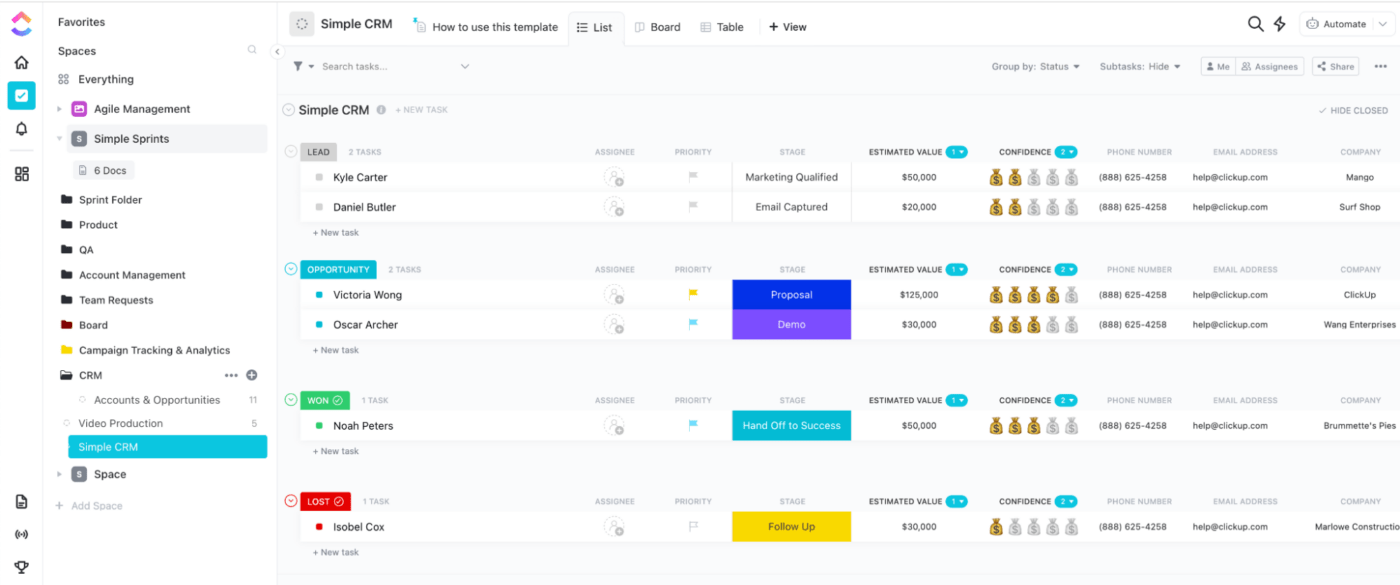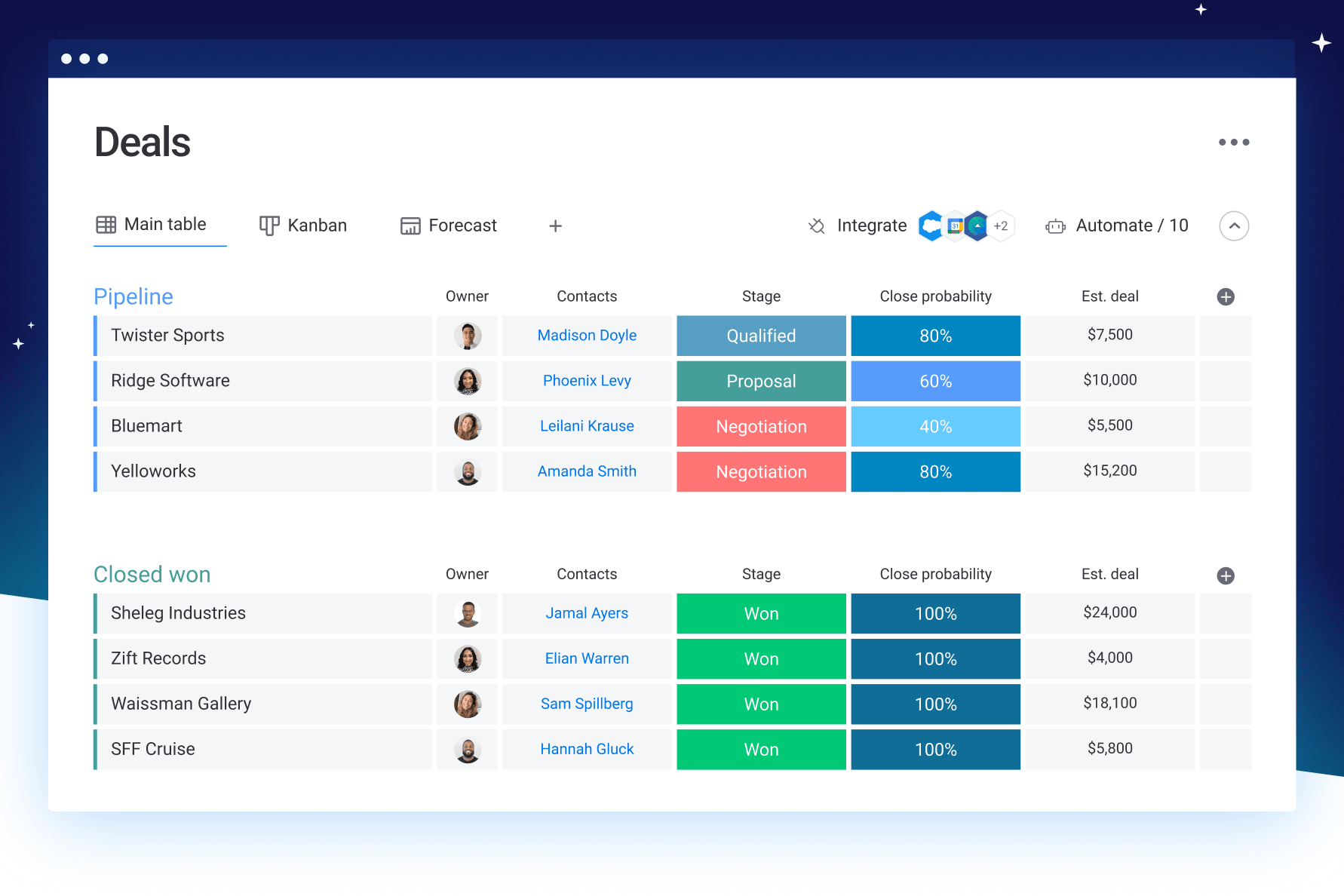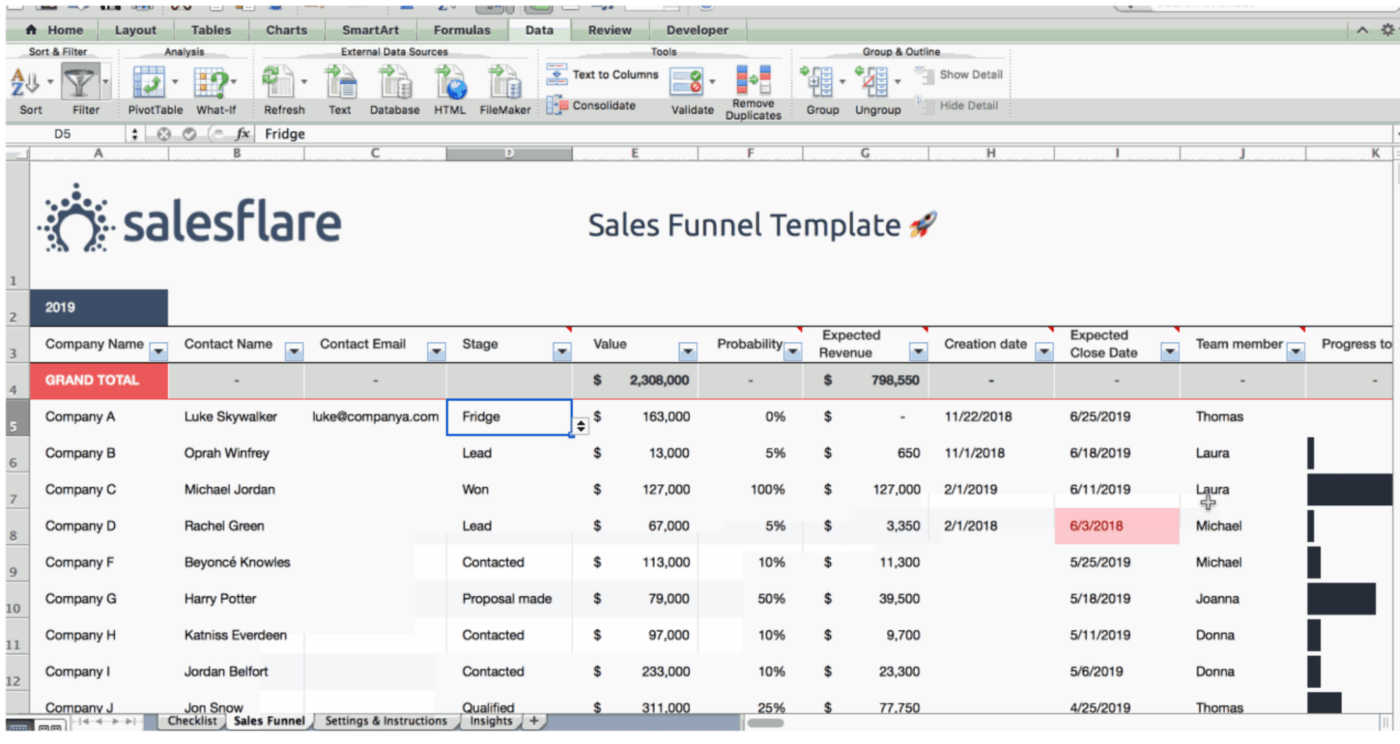Embark on a journey with CRM Simple, a comprehensive guide that unravels the complexities of customer relationship management (CRM) and empowers you with the knowledge to streamline your business processes. Immerse yourself in a narrative that unravels the essence of CRM, its benefits, and the art of customizing and integrating it seamlessly into your operations.
Prepare to unlock the secrets of effective CRM reporting, security, and emerging trends that will shape the future of customer engagement.
CRM Simple is not just a guide; it’s an invitation to transform your customer interactions, boost productivity, and drive business growth. As we delve into the intricacies of CRM, you’ll discover how simplicity can revolutionize your approach to customer management, empowering you to build lasting relationships and achieve unprecedented success.
CRM Basics

Customer relationship management (CRM) systems are software tools that help businesses manage their interactions with customers and track their sales, marketing, and customer service activities. CRM systems can be used to automate many tasks, such as sending out marketing emails, tracking customer orders, and managing customer support requests.
This can help businesses save time and money, and improve their customer service.
Benefits of using a CRM system
There are many benefits to using a CRM system, including:
- Improved customer service: CRM systems can help businesses track customer interactions and provide better customer support.
- Increased sales: CRM systems can help businesses track their sales pipeline and identify opportunities for growth.
- Improved marketing: CRM systems can help businesses target their marketing efforts and track the results of their campaigns.
- Reduced costs: CRM systems can help businesses automate many tasks, which can save time and money.
- Improved decision-making: CRM systems can provide businesses with valuable insights into their customer data, which can help them make better decisions.
Simple CRM Features

A simple CRM system is designed to be user-friendly, with a focus on essential features that are easy to understand and use. It streamlines customer interactions and provides a centralized platform for managing customer data.
Simplicity is crucial in CRM design as it reduces the learning curve, allowing users to quickly adopt the system and realize its benefits. A simple CRM eliminates the complexities often associated with traditional CRM solutions, making it accessible to businesses of all sizes and technical expertise.
Key Features of a Simple CRM
- Contact Management:Centralized storage and organization of customer contact information, including name, email, phone number, and address.
- Lead Management:Tracking and qualifying potential customers through various stages of the sales pipeline.
- Task Management:Assigning and tracking tasks related to customer interactions, such as follow-ups, appointments, and emails.
- Activity Tracking:Recording and monitoring customer interactions, including calls, emails, meetings, and notes.
- Reporting:Generating reports on sales performance, customer activity, and other metrics to gain insights into customer behavior and improve decision-making.
Importance of Simplicity in CRM
Simplicity in CRM design enhances user adoption by:
- Reducing the Learning Curve:A simple CRM is easy to understand and use, minimizing the time and effort required for training and onboarding.
- Improving Usability:A user-friendly interface and intuitive navigation make it easy for users to access and manage customer data, even for those with limited technical skills.
- Increasing Productivity:A streamlined CRM system reduces the time spent on manual tasks and data entry, allowing users to focus on more strategic activities.
- Enhancing Data Quality:Simplified data entry and validation processes ensure that customer data is accurate and consistent, improving the reliability of reports and analysis.
- Driving Adoption:A simple CRM is more likely to be embraced by users, leading to higher adoption rates and a greater return on investment.
CRM Customization
CRM customization empowers businesses to tailor their CRM system to meet their specific needs and requirements. By leveraging customization options, organizations can enhance the functionality and effectiveness of their CRM, resulting in improved productivity, efficiency, and customer satisfaction.
CRM customization can be achieved through various methods, including:
- Field Customization:Create, modify, or remove fields to capture data specific to your business processes.
- Object Customization:Define custom objects to represent unique entities within your organization, such as products, projects, or opportunities.
- Workflow Customization:Automate business processes by creating custom workflows that trigger actions based on specific events or conditions.
- Integration Customization:Connect your CRM with other applications and systems to streamline data flow and improve collaboration.
- Reporting Customization:Generate custom reports and dashboards to visualize and analyze data in a way that aligns with your business objectives.
Benefits of CRM Customization
Customizing a CRM system can provide numerous benefits, including:
- Improved Data Management:Capture and organize data in a way that is relevant to your business, ensuring data accuracy and completeness.
- Enhanced Functionality:Add features and capabilities that are tailored to your specific requirements, extending the functionality of your CRM.
- Increased Productivity:Automate tasks and streamline processes, freeing up time for your team to focus on high-value activities.
- Improved User Experience:Design a CRM interface that is intuitive and easy to use, enhancing user adoption and satisfaction.
- Competitive Advantage:Differentiate your business by leveraging a CRM that is tailored to your unique needs and provides a competitive edge.
Best Practices for CRM Customization
To ensure effective CRM customization, consider the following best practices:
- Identify Clear Goals:Define the specific objectives and outcomes you aim to achieve through customization.
- Involve Stakeholders:Engage users, managers, and other stakeholders in the customization process to gather their input and ensure alignment.
- Prioritize Customization:Focus on customizing the most critical areas first, based on your business needs and priorities.
- Test and Iterate:Thoroughly test customized features and workflows to ensure they meet your requirements and make adjustments as needed.
- Seek Professional Assistance:Consider consulting with experienced CRM professionals to guide you through the customization process and ensure optimal results.
CRM Integration: Crm Simple
Integrating a CRM system into your business processes is crucial for streamlining operations, enhancing customer relationships, and driving growth. CRM integration enables seamless data flow between various software applications, allowing for a unified view of customer information and interactions.
There are several types of CRM integrations, each tailored to specific business needs:
Data Integration
- Connects CRM with other systems, such as ERP, marketing automation, and accounting software.
- Synchronizes customer data, orders, invoices, and other relevant information in real-time.
- Eliminates manual data entry and reduces errors, improving data accuracy and efficiency.
Process Integration
- Automates workflows and business processes across multiple systems.
- Triggers actions based on specific events or customer interactions.
- Streamlines processes, saves time, and improves productivity.
Application Integration
- Embeds CRM functionality within other applications, such as email clients or productivity suites.
- Provides easy access to customer data and CRM features without switching between applications.
- Enhances collaboration and improves user experience.
Example: Improved Customer Service
Integrating CRM with a helpdesk system allows support agents to access customer information, previous interactions, and case history. This enables them to provide personalized and efficient support, resolving issues faster and enhancing customer satisfaction.
CRM Implementation

CRM implementation is the process of integrating a CRM system into an organization’s business operations. It involves planning, customization, training, and deployment of the system.The steps involved in implementing a CRM system typically include:
1. Planning
This phase involves defining the business objectives for the CRM system, identifying the stakeholders, and creating a project plan.
2. Customization
The CRM system is customized to meet the specific needs of the organization. This may involve configuring the system’s features, creating custom fields, and integrating the system with other business applications.
3. Training
Users are trained on how to use the CRM system. This training should cover both the functional and technical aspects of the system.
4. Deployment
The CRM system is deployed to the organization’s users. This may involve installing the system on-premises or in the cloud.
5. Support
Ongoing support is provided to users to ensure that they are able to use the CRM system effectively. This support may include documentation, training, and troubleshooting assistance.
Challenges of CRM Implementation
There are a number of challenges that can arise during CRM implementation. These challenges include:* Data migration:Migrating data from the organization’s existing systems to the CRM system can be a complex and time-consuming process.
User adoption
Getting users to adopt the CRM system can be difficult. This is often due to resistance to change or a lack of understanding of the benefits of the system.
Integration
Integrating the CRM system with other business applications can be complex and expensive.
Cost
CRM systems can be expensive to purchase and implement.
Tips for Successful CRM Implementation
There are a number of tips that can help to ensure the successful implementation of a CRM system. These tips include:* Start with a clear plan:Having a clear plan for the CRM implementation will help to keep the project on track and avoid delays.
Get buy-in from stakeholders
It is important to get buy-in from all of the stakeholders in the CRM implementation. This will help to ensure that the system is implemented successfully and used by everyone in the organization.
Train users properly
Users need to be properly trained on how to use the CRM system. This training should cover both the functional and technical aspects of the system.
Provide ongoing support
Users need to have access to ongoing support to ensure that they are able to use the CRM system effectively. This support may include documentation, training, and troubleshooting assistance.
CRM Reporting
CRM reporting is essential for businesses to track their progress, measure their success, and make informed decisions. CRM reports provide valuable insights into customer behavior, sales performance, and marketing effectiveness.
There are many different types of CRM reports, each with its own purpose. Some of the most common types of CRM reports include:
- Sales reports: Track sales performance, including revenue, profit, and sales volume.
- Marketing reports: Measure the effectiveness of marketing campaigns, including website traffic, leads generated, and conversion rates.
- Customer service reports: Track customer service metrics, including average response time, resolution rate, and customer satisfaction.
CRM reports can be used to improve business decisions in a number of ways. For example, sales reports can be used to identify areas where sales are underperforming and to develop strategies to improve sales performance. Marketing reports can be used to identify which marketing campaigns are most effective and to adjust marketing strategies accordingly.
Customer service reports can be used to identify areas where customer service can be improved and to develop strategies to improve customer satisfaction.
CRM Security

CRM security is of paramount importance as it safeguards sensitive customer data, including personal information, transaction details, and communication records. Without robust security measures, businesses risk data breaches, compliance violations, and reputational damage.
Types of CRM Security Measures
Various security measures can be implemented to protect CRM systems, including:
Access Control
Restricting access to authorized users based on roles and permissions.
Data Encryption
Encrypting data both at rest and in transit to prevent unauthorized access.
Audit Trails
Tracking and logging user activities to monitor system usage and identify potential security breaches.
Multi-Factor Authentication
Requiring multiple forms of identification for user login, such as passwords and security tokens.
Regular Security Updates
Applying software updates and patches to address vulnerabilities and enhance security.
Best Practices for CRM Security, Crm simple
To ensure optimal CRM security, consider the following best practices:
Implement a Comprehensive Security Policy
Establish clear guidelines for data handling, access control, and security incident response.
Conduct Regular Security Audits
Assess the effectiveness of security measures and identify areas for improvement.
Train Employees on Security Awareness
Educate users about cybersecurity threats and best practices to prevent data breaches.
Monitor and Respond to Security Incidents
Implement mechanisms to detect and respond to security breaches promptly and effectively.
Collaborate with IT and Security Teams
Ensure alignment with the organization’s overall security strategy and receive support from IT professionals.
CRM Trends
Customer relationship management (CRM) is constantly evolving, with new trends emerging all the time. These trends are driven by the changing needs of businesses and customers, as well as the advancements in technology. Businesses need to be aware of these trends and prepare for them in order to stay competitive.
One of the most important CRM trends is the move towards cloud-based CRM systems. Cloud-based CRM systems are hosted by a third-party provider, which means that businesses do not have to invest in hardware or software. This can save businesses a lot of money and time.
Cloud-based CRM systems are also more flexible and scalable than on-premise CRM systems, making them a better choice for businesses of all sizes.
Another important CRM trend is the increasing use of artificial intelligence (AI). AI can be used to automate many CRM tasks, such as lead generation, lead qualification, and customer service. This can free up sales and marketing teams to focus on more strategic tasks.
AI can also be used to provide businesses with valuable insights into their customers’ behavior. This information can be used to improve marketing campaigns, product development, and customer service.
Finally, the rise of social media is having a major impact on CRM. Social media provides businesses with a new way to connect with their customers and build relationships. Businesses can use social media to share information about their products and services, answer customer questions, and provide customer support.
How Businesses Can Prepare for CRM Trends
Businesses need to be aware of the latest CRM trends and prepare for them in order to stay competitive. Here are a few tips for businesses:
- Evaluate your current CRM system and see if it is meeting your needs.
- Consider moving to a cloud-based CRM system if you are not already using one.
- Start using AI to automate CRM tasks and gain insights into your customers’ behavior.
- Use social media to connect with your customers and build relationships.
Summary
In the realm of customer management, CRM Simple stands as a beacon of clarity and efficiency. Its emphasis on simplicity empowers businesses of all sizes to harness the full potential of CRM, unlocking a world of possibilities. Embrace the transformative power of CRM Simple and witness the profound impact it can have on your customer relationships, business operations, and overall success.
The journey to CRM mastery begins here, with this comprehensive guide as your trusted companion.
Popular Questions
What is CRM Simple?
CRM Simple is a comprehensive guide to customer relationship management (CRM), designed to simplify the complexities of CRM and empower businesses to streamline their customer management processes.
Why is simplicity important in CRM?
Simplicity in CRM design enhances user adoption, reduces training time, and improves overall productivity. A user-friendly CRM system empowers employees to manage customer interactions effectively and efficiently.
What are the benefits of using CRM Simple?
CRM Simple provides a clear and concise roadmap to CRM implementation, helping businesses optimize their customer management strategies, improve customer satisfaction, and drive business growth.
